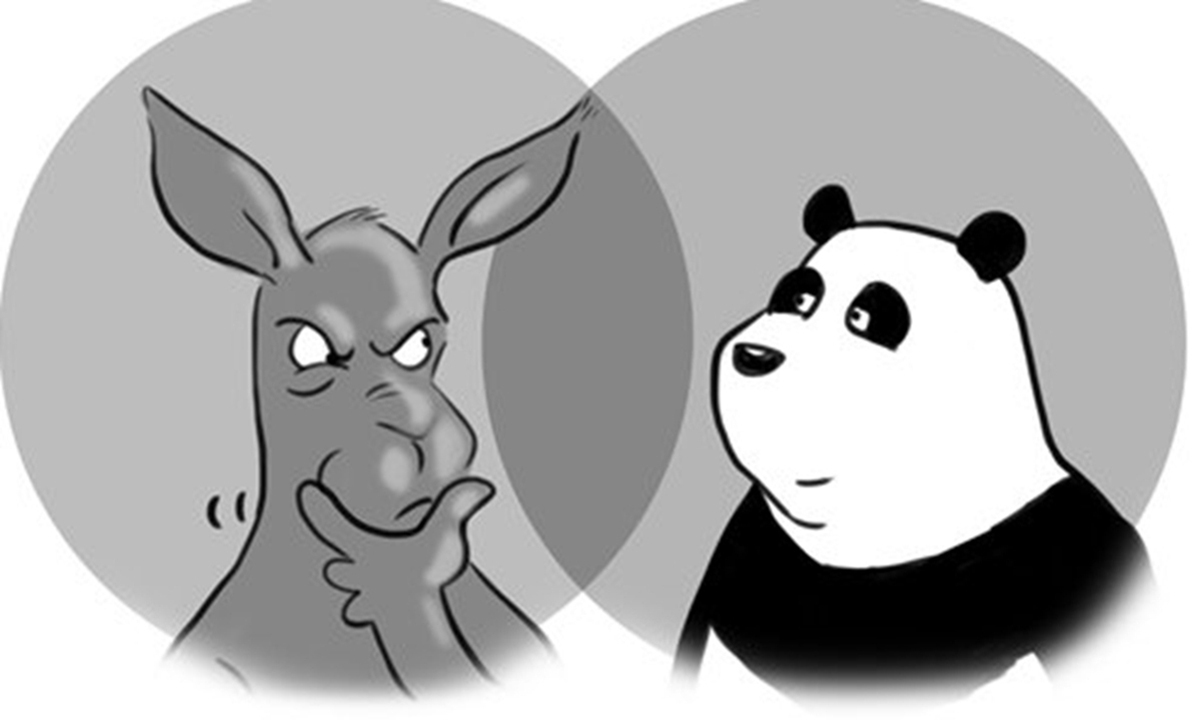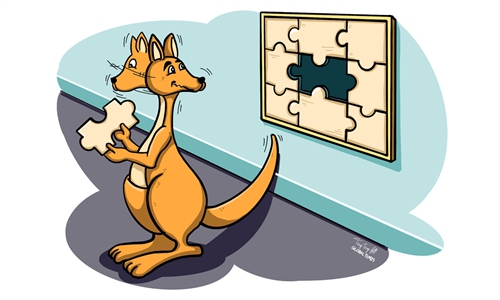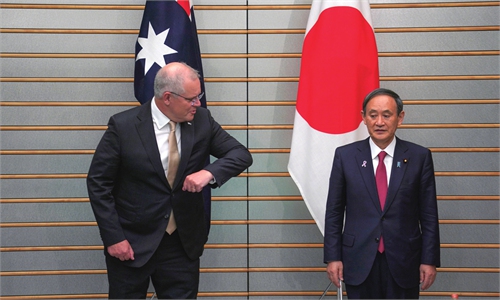
Illustration: Liu Rui/GT
The trade tensions between China and Australia seems to have fallen for a propaganda stunt by some Australian media outlets that are obsessed with fueling market panic over every trade frustration with China.Media on Monday reported fears that Australia's wine exports to China may have been cut off entirely after an industry group claimed that none of its member exporters have reported shipment clearance at Chinese customs in two weeks.
In the absence of any official confirmation of the facts, such market rumors will clearly just make the stalemate between China and Australia even worse. In fact, in recent months, it has not been uncommon to see Australian media outlets play up so-called China's "economic retaliation" against Australia, unanimously ignoring China's official response or explanations on several trade issues.
Australian officials have been no friendlier than the media. It is true that Australian government officials have expressed a wish to ease trade tensions with China. From a solely economic perspective, however, the Australian government hasn't done anything substantial to aid bilateral trade between the two countries amidst the current difficulties. To be clear, Australia is among the first group of countries to ban Chinese companies from its 5G network without any evidence of a "national security risk", and it has repeatedly blocked Chinese companies from investing in Australia.
Politically speaking, Australia's relentless desire to increase pressure on China is evidence enough of hostility toward its biggest trading partner. According to media reports, Australian and Japan have reached a broad agreement on a historic defense pact, which observers generally believe is aimed at containing China's influence in the region.
Moreover, the Australian side has only poisoned the bilateral relationship further by grossly interfering in China's internal affairs and speaking and acting out of turn on issues concerning China's red line issues of Hong Kong, Xinjiang and Taiwan.
Given everything the Morrison government has managed to do to damage China-Australia relations, it is doubtful whether Australia has any sincerity in truly easing the tension between the two countries at all.
There is no way to separate politics and the economy. The premise of bilateral trade is mutual respect, and the steady development of a good political relationship will be conducive to their trade interests in the long run. Perhaps only when the Australian government feels the pain of economic woes will its politicians recognize their wrong actions in handling bilateral relations.
The stalemate in China-Australia relations can be entirely attributed to the Australian side. Ending such a frustrating situation requires more concrete action to bring bilateral ties back on track rather than spouting more empty words.


